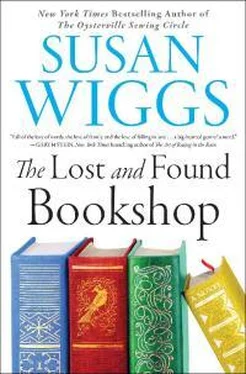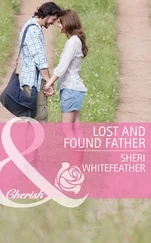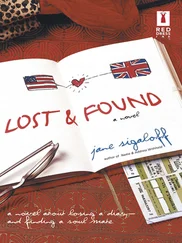The soft hiss of the machine, the droning grind of the beans in the mill, the rich, fecund aroma of coffee evoked all the mornings of her childhood. Now the rattle of the espresso machine was a lonely sound. It would not summon her yawning mother from upstairs. There would be no morning glory muffin from the bakery across the way and no joint perusal of the Examiner .
Natalie drew a shot, using a promotional mug from some publisher or other that directed her to find her dreams. The book being promoted was called Swim Story , with the slogan Find Your Lane. Find Your Dream.
She made herself a café cortado, the powerful creamy coffee served in Spain. She had read about this style of coffee in a book and had taught herself to make one perfectly. One day, she thought, she’d like to go to Spain. She’d had the chance to study there during her college semester abroad—Spain had been one of the most enticing options. It would have been lovely to enjoy the soft breezes of Málaga and the glorious Moorish artifacts of Granada. Half a year in Spain had not been practical, though. It was expensive and didn’t offer the technical classes she needed. Instead, she chose Shanghai for her semester abroad. It was tailor-made for her degree program. Wending her way through smog and traffic each day, she had learned digital management from the culture that had invented it. Her homestay had been with a family that specialized in antiquities. It had been the greatest adventure of her life, whetting her appetite to do more. But work came first, always. Spain would have to wait.
Still, she could make coffee like the Spanish did.
In the midst of the silence, she heard a soft mew. “Sylvia,” she said, feeling a rush of relief. “There you are. Cleo said you’d disappeared.” The dainty calico cat was named after Sylvia Beach—not Sylvia Plath, her mom used to insist. Sylvia Beach had had a Paris salon and bookstore—and presumably no mental health issues.
Natalie sat at one of the three small café tables. Sylvia poured herself down from the windowsill and onto the chair across from Natalie.
She gazed into the cat’s topaz eyes. “Hello, gorgeous. What’s going to become of you now? Will Grandy look after you?” She reached across the table to pet Sylvia. The moment her hand brushed the chinchilla-soft fur, Sylvia scratched her, a clawed lightning bolt shooting out of nowhere. “Hey!” Natalie drew back her hand, examining the broken skin. “What was that for?” She went to the sink and washed the parallel scratches. “Oh, that’s right. You’re a cat.”
Returning to the table, she spooned up a bit of the warm foam from her cortado and held it out for the cat to lick. “I’m glad she had you. You were with her every day. You were good company, I suppose. Or did you scratch her, too? I hope you know better than to harass the customers.”
The shop looked the same as it always had. Mom never liked change. Floor-to-ceiling shelves accessed by rolling ladders with brass fittings. Display tables featuring the latest bestsellers. The children’s section with a rug and beanbag chairs. Rare books in display cases. Blythe’s favorite shelf near the coffee area. She’d labeled it w.o.w. (words of wisdom) and it was stocked with her perennial favorites with bookmarked passages.
Natalie used to love browsing that shelf. A book would never betray you or change its mind or make you feel stupid. She took down The Once and Future King and found a marked passage: “The best thing for being sad,” replied Merlyn, beginning to puff and blow, “is to learn something. That is the only thing that never fails.”
“There you have it,” Natalie said to the cat. “My plan for the day.”
The aftermath of unexpected death was a lengthy and complicated ordeal. She opened her laptop and clicked on the document she had started—a list of everything that had to be done. She hadn’t known what to call it, so she’d titled the document “Now What.”
Gazing at the cat, she added it to the list. Another detail to attend to. What would become of the shop without her mom? Could Natalie count on Grandy to take care of Sylvia? Fill her water bowl? Post her picture on Instagram for all the world to see? What if he forgot to feed her? She added a question mark to the intimidatingly growing list of things she had to deal with.
She gave the cat some kibble, and Sylvia took a few dainty bites, then slipped out through the cat door to the back garden.
A fresh eddy of sadness washed over Natalie, and she shuddered with emotional pain. When would the tears stop? When would the pain subside? It wasn’t like a headache or illness that could be cured by swallowing a pill. No, this ache of missing and regret felt like a constant, incurable condition.
In the back office behind the sales counter, she switched on her mother’s laptop. This, she knew, was going to add to her pain, but there was no avoiding it. She had to access her mother’s digital life. Natalie was supposed to be good at that—putting things in order.
The opening screen featured a picture of Sylvia preening herself in the shop window, and Good Morning, Blythe. The required passwords and PIN codes were on a handwritten list under her desk blotter. Mom claimed she was an identity thief’s dream, because she always used the same codes and never changed them. She used to say it was because she had nothing to hide and couldn’t remember codes and passwords anyway.
Culling through her mother’s private digital life felt strange and intrusive, and Natalie knew she was only at the beginning of the ordeal. When someone left without warning, there was work to be done.
Her mother probably had a will somewhere. Natalie had a look through the computer files, trying to figure out where to dig in first.
She opened a folder labeled the lost and found bookshop: a ______________.
What had her mother meant to put in the blank space?
She found scan after scan of notes in her mother’s handwriting as well as what appeared to be age-yellowed documents. There was a ship’s manifest from 1888 with the name Colleen O’Rourke highlighted, and muster rolls from something labeled “Astor Battery” with the name Julio Harper marked. Another file contained a wealth of information about William Randolph Hearst.
There was also a printed report from one of those mail-away DNA tests. She was fascinated by the results. Predictably, her mother was of mostly Anglo-European descent. But the results also showed she was 7 percent Spanish; 12 percent African. Seriously?
Natalie gazed at her face in the wavy glass of the old barrister cabinet behind the counter. Dark curly hair like her mother’s. Pale skin and brown eyes—traits she shared with the man who had fathered her. What did the 12 percent mean? How did one determine one’s ethnicity? Who were her ancestors?
Oftentimes throughout her life, she’d felt like a stranger to herself. Had Mom felt the same way? Could this be the reason? Natalie burned with frustration over the questions she would never be able to ask her mother— What were you looking for? And why didn’t you share it with me?
She checked the banking and credit card accounts and shuddered with apprehension. There were enormous bills and care fees related to Grandy’s accident and broken hip—including many costs not covered by Medicare. Scariest of all—liens from the city, county, and state for unpaid taxes. Her mother’s own business expenses, taxes and fees, the utilities and upkeep on the shop. The amount took Natalie’s breath away. If the figures were accurate, her mom—and the shop—were drowning in debt and unpaid bills and had been for quite some time.
She found more bad news stuffed into a ripped envelope and tucked out of sight—a notice of foreclosure. From what she could piece together, a large property equity loan from a private lender had been taken out in Grandy’s name, and they were in default.
Читать дальше












